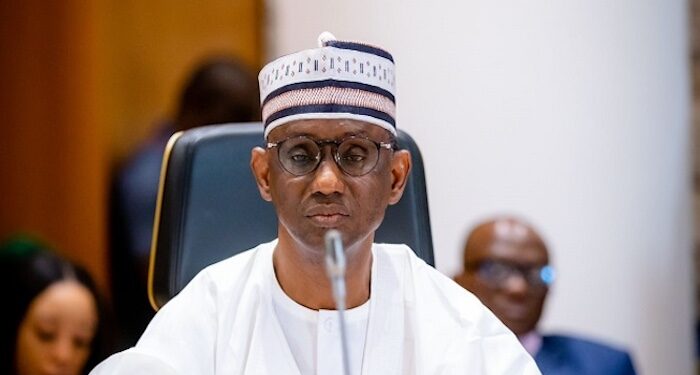The National Security Adviser (NSA), Mallam Nuhu Ribadu, has firmly denied claims of foreign military bases in Nigeria, rejecting an attempt by the United States to establish the AFRICOM base within the country’s borders. Ribadu stressed that Nigeria prioritizes sovereignty and regional stability.
Speaking on Friday, Ribadu dismissed allegations by Niger’s military leader, General Abdourahamane Tchiani, who accused Nigeria of collaborating with France to destabilize his country. Ribadu called the claims baseless, stating, “Nigeria’s relationship with France is built on economic cooperation, not military collaboration.”
Diplomatic Ties Intact
Ribadu reiterated that Nigeria remains committed to maintaining diplomatic relations with global powers, including France, the United States, the United Kingdom, Russia, and China. He emphasized that Niger’s internal conflicts would not dictate Nigeria’s foreign policy, urging both nations to collaborate on tackling shared security threats such as terrorism.
“We are neighbors and brothers,” Ribadu said. “Our focus should be mutual development and confronting common challenges, not accusations.”
ECOWAS and Northern Groups Respond
The Economic Community of West African States (ECOWAS) dismissed the accusations by the Nigerien military junta, calling them unfounded. ECOWAS emphasized Nigeria’s long-standing commitment to regional peace and security, highlighting the success of the Multinational Joint Task Force (MNJTF).
“Nigeria has consistently supported peace efforts in West Africa,” the ECOWAS statement read. “The allegations lack evidence and contradict Nigeria’s track record of fostering stability.”
Meanwhile, the Arewa Think Tank (ATT), a prominent northern group, blamed desperate politicians for fueling the accusations. Muhammad Alhaji Yakubu, the group’s convener, warned against actions that could harm Nigeria’s relationship with Niger. “Such claims are mere fabrications aimed at disrupting governance and causing unnecessary tension,” Yakubu said.
Historical Context
Ribadu highlighted Nigeria’s history of rejecting foreign military presence. In 2009, under President Umaru Yar’Adua, Nigeria refused U.S. plans to host AFRICOM. Recently, when tensions rose between the U.S. and Niger, a similar proposal was declined.
Ribadu pointed out that Niger’s own history of hosting foreign bases contradicted its accusations. He noted, “Niger hosted U.S. bases they later expelled, while Nigeria has always prioritized its sovereignty.”
Call for Cooperation
Ribadu urged Niger’s leadership to focus on collaboration rather than confrontation. “We need to unite against common threats like terrorism,” he said. “Baseless allegations only divert attention from addressing real issues.”
The Arewa Think Tank echoed this sentiment, urging Nigerian politicians to avoid actions that could destabilize the country. “We need peace to enjoy the dividends of democracy,” the group stated.
Skepticism and Criticism
However, the League of Northern Democrats (LND) criticized the Nigerian government’s response, calling it insufficient. Ladan Salihu, LND’s spokesperson, questioned the denial, citing France’s controversial role in Africa’s geopolitics.
“The government’s arguments leave significant gaps,” Salihu said. “More transparency is needed to address concerns and foster trust.”
Despite differing perspectives, Nigeria’s stance remains clear: promoting peace, preserving sovereignty, and strengthening regional ties are the nation’s priorities.


